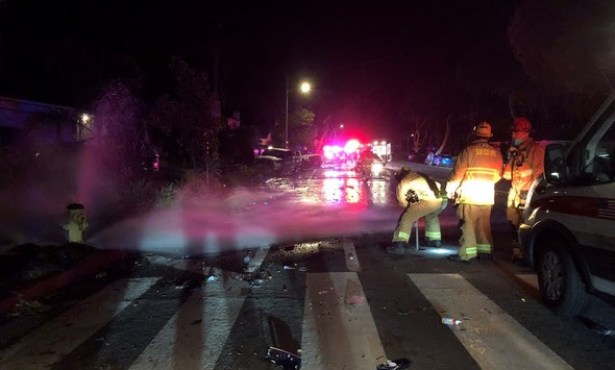Wrongful Death Suit Settles for $1.25 Million
Clifford Detty Case Sparks Big Changes at County's Psychiatric Health Facility

Rather than running the risk of going to trial, the County of Santa Barbara agreed to settle the wrongful death lawsuit brought by the father of Clifford Detty, the 46-year-old North County resident who died in April 2010 while in custody at the county’s Psychiatric Health Facility (PHF) for $1.25 million. The settlement became official October 24, though the broad details had been arrived at in August, shortly after the case was scheduled to go to trial in federal court on civil rights charges.
Detty had been picked up the evening of April 28 in the throes of an apparent psychotic breakdown. After it was determined he posed a threat to himself or to others, Detty was dispatched from the Santa Maria emergency room — where he’d been medicated — to the county PHF unit in Santa Barbara for treatment and a 72-hour involuntary hold. While there, Detty — who alternated between sleeping and screaming and threatening — was placed in physical restraints and put in a secluded room where he was twice administered two powerful anti-psychotic medications. Within 10 hours, he was dead.
According to the lawsuit filed by his father Richard Detty, a retired insurance company executive, PHF medical personnel failed to follow their own protocol which required that they take Clifford Detty’s vital signs every 15 minutes. Instead, medical records indicated Detty’s vitals were taken only once. Detty had an enlarged heart and had methamphetamine in his system. The two medications he was administered via intramuscular injection can sometimes cause respiratory failure when given together. In about 10 hours, Detty had been given the maximum dose allowed for a 24-hour period, said his father.
Among other things, the Detty case triggered two top-to-bottom inspections of the county’s much maligned PHF unit by federal regulators, who threatened at one point to shut the facility down unless drastic remedial steps were taken. Santa Barbara has only 16 PHF beds, considerably less than the 45 needed to accommodate the county’s monthly demand. As a result, the county spends $1.3 million a year sending Santa Barbara’s mentally ill to facilities in Ventura County. As a result of these federal enforcement actions, Ann Dietrich, then the county’s chief of Alcohol, Drug and Mental Health Services, lost her job. Detty’s death also gave rise to two major internal audits — conducted by outside consultants — as to how mental health and drug abuse services could be better dispensed.
Detty’s father said his son began experiencing mental health problems in his mid-thirties after having developed a habit for pain medications following two knee surgeries. Increasingly, he said, his son ran afoul of the law, racking up 17 arrests for relatively minor offenses. Detty would learn later that his son had been diagnosed as a paranoid schizophrenic, but by that time, securing help from county mental health professionals was easier said than done. Detty said he visited county mental health offices six times, twice in the weeks immediately preceding his son’s death. Nothing could be done, he was told, unless Richard Detty brought his adult son along.
When Clifford Detty was taken to PHF, he was placed in a room where he could be monitored by video camera. But it turned out there was only one audio track for all four of the facility’s video units. County officials signed the settlement stipulating that they acknowledged no wrongdoing on their part. In court papers, they noted that the coroner’s report showed that Detty died of acute exposure to methamphetamine. And they argued that the county’s protocol requiring vital signs be taken every 15 minutes for restrained patients was somewhat contradictory and ambiguous.
Detty takes no satisfaction in the settlement, saying “I was screwed.” He claimed he was strong-armed by his attorney, David Feldman, to accept a settlement that he’d opposed and that he’d been threatened with legal action by an insurance adjuster hired by the county’s insurance company. Likewise, he claimed that his lawsuit failed to bring about change at the PHF unit or any disciplinary actions against the doctor in charge at the time of his son’s death. (That doctor, on-call during evening hours, had phoned in the orders to give Detty’s son the anti-psychotic drugs without seeing him first and without fresh vitals being taken. That doctor still maintains office hours at the PHF unit.)
Feldman declined to respond to Detty’s allegations, but he insisted that PHF intake forms have been changed in response to the lawsuit to require vitals be recorded every 15 minutes. Likewise, he said, separate audio channels have been established for each video monitor screen so that secluded patients can be better tracked. Not coincidentally, the number of patients placed in seclusion and restraints has dropped significantly since Detty’s death and the subsequent federal inspections. “The truth is it was a tough case, and it was a great victory not just in terms of the amount but in terms of the changes made,” he said. “Now, people will have their vitals taken every 15 minutes. That’s huge.”



